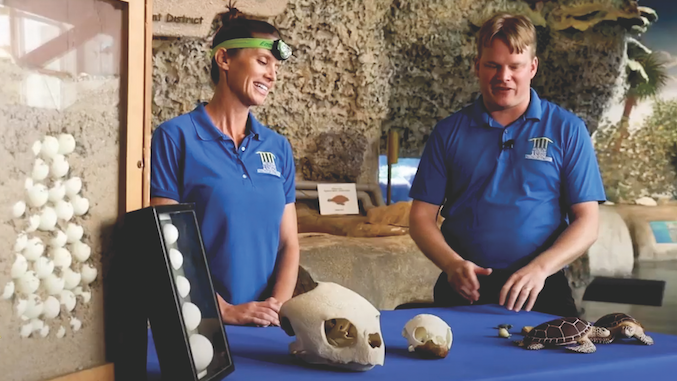
South Florida's shutdown has pushed companies to think outside the box.
Published: May 12, 2020
By: Jennifer Jhon
The Coronavirus shutdown has been devastating for many businesses and organizations.
But the forced isolation has also given companies the time and incentive to think outside the box and make changes.
Joseph P. Cox, the president and CEO of the Museum of Discovery and Science in Fort Lauderdale, said MODS reacted quickly when the pandemic hit. “The first thing that dawned on me, about 5 minutes after the museum closed, was this is uncharted territory for everyone, and we really have an opportunity to define our own future.
“We pretty much immediately recognized that … our mission is connecting people to inspiring science, and that doesn’t stop because our doors are closed.”
He said the staff looked at the museum’s strengths – exciting STEM education, hands-on experiences and connecting to the community – to chart their course. “That’s where the idea for Virtual Camp Discovery came about.”
Virtual Camp Discovery is a series of free videos, posted every weekday, that highlight the museum’s more exciting experiences and bring them to life, from animal encounters and science shows to slime-making projects and tours of the museum’s exhibits.
MODS didn’t stop there. “From that we’ve spun out a few other things,” Cox said.
MODS reached out to Broward County Public Schools in the early stages of the shutdown. “We work with the school system a lot. This time of year, we’re usually expecting 1,000 children a day coming through the museum on a school field trip,” he said.
But with field trips canceled, the museum switched gears. “We’re now in the process of creating eight weeks of curriculum from preK to 12,” Cox said.
That effort, the MODS Challenge, is divided into 4 age groups: preK-2, 3-5, 6-8 and 9-12. It includes a new STEAM-based project each week for teachers, students and parents with an activity guide, curriculum and video resources.
The MODS Challenge curriculum is sent out weekly through the school system and posted on the museum website, free of charge, Cox said.
As social distancing continues, MODS events are also going digital. A virtual version of the museum’s annual Eye of the Storm hurricane preparedness event is in the works.
MODS will partner with Florida International University to produce a series of videos on hurricane science. “The finished product will be available on all our social media platforms, and for our partner institutions in communities where hurricanes are an issue.”
The move to online events and education has been a fascinatingly quick evolution, Cox said. “Museums across the country are realizing this is how we stay engaged with our visitors.”
He said sponsors, such as Citrix, FIU, the Florida Department of Emergency Management and others, have stepped up to support the new programs at MODS.
“The digital online curriculum, that wasn’t something we were looking at doing until the pandemic rolled through,” Cox said. “It raises an interesting conversation about the role of museums. Museums are usually seen as informal education … but suddenly we’re developing content delivered in the same way as formal education.”
Keeping in touch
Jungle Island and the Phillip and Patricia Frost Museum of Science in Miami are also delivering educational content designed to keep them in touch with their visitors.
“The pandemic has really had us looking at business very differently,” said Jungle Island spokesperson Rachel Pinzur. “We know a lot of our fans miss the park, and they miss the animals. It was really important that we continue to find ways to engage with our community and our fans, especially since many are young, and they are stuck at home.”
The first thing Jungle Island launched was its homeschool program, which delivers a new assignment each weekday at 11 a.m. Video introductions are posted on Facebook and Instagram with a link that goes back to website. “We had over 500 fans go to Jungle Island’s homeschool landing page the first day. People were really excited.”
The homeschool lessons have been a complete success, she said. “It’s keeping our education manager extremely busy.”
The park’s second initiative was starting a Facebook Live show. Veterinarian Jason Chatfield had been doing Chats With Chatfield for years in person, so he was well-groomed for taking the show online. Chats With Chatfield goes live every Wednesday at 3:30 p.m., and a second live show is done in Spanish with Marisela Gutierrez at 3:30 p.m. every Thursday.
The biggest lesson from the experience, Pinzur said, “has been the unbelievable amount of opportunities we have to engage with our guests even when the park is closed. We’re going to continue to explore that much more.”
The Power of Science
Over at the Frost Science Museum, virtual learning was already in place, but then Frost powered up with the Frost Science@Home digital learning platform, which launched in March. It offers free educational resources, behind-the-scenes videos, family-friendly science activities, exhibit exploration and a webcam focused on the museum’s 500,000-gallon Gulf Stream aquarium.
“Online learning was something we always instilled, but this was another level,” said Christina Rodriguez, a spokesperson for Frost Science. “We have a 360-degree video that captures 11 of the major exhibitions, DIY science activities for kids to do at home, and a more in-depth look at our husbandry teams.”
The museum is also using social media to reach out, and it has a wealth of videos on Facebook as well as a weekly show, Virtual LIVE@Frost Science, on Wednesdays at 2 p.m.
The museum constantly updates Frost Science@Home with new content and plans to keep it going after the museum reopens, Rodriguez said. “We’re getting good feedback from teachers (and parents) because this is a way for them to include science activities they can use. … It’s definitely become a good in-home resource for everyone.”
